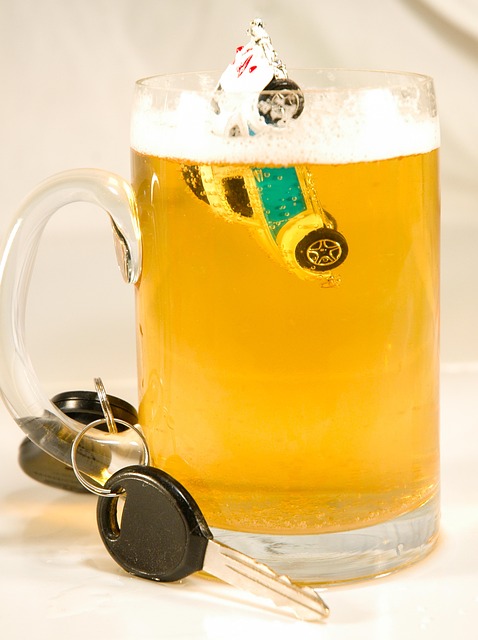Teen Driver Rehabilitation (TDR) programs are designed to support young individuals who face licensing challenges due to employment issues, focusing on both driving skills and personal growth. These tailored interventions address unique circumstances, prepare teens for responsible driving, and enhance their employability. By providing vocational training, life skills workshops, and mentorship, TDR programs help clear records, secure future job prospects in sectors like transportation, and foster maturity. Balancing accountability with redemption, these programs aim to prevent repeat offenses while empowering teenagers to overcome past challenges and achieve success.
“Uncovering the path to redemption and second chances, this article explores the critical aspect of teen driver rehabilitation, a crucial step towards transforming young lives. For teenagers with an employment history, their records can significantly impact future opportunities, often presenting barriers to their career paths. We delve into the understanding, impact, and clearing of these records, offering insights on legal considerations, ethical implications, and effective programs designed to rehabilitate teen drivers, ultimately highlighting success stories that inspire hope for a brighter future.”
- Understanding Teen Driver Rehabilitation: A Necessary Step for Young Drivers with Employment History
- The Impact of Records on Future Opportunities: How Employment Records Affect Teen Drivers' Pathways
- Clearing Records: Legal and Ethical Considerations in Teen Driver Rehabilitation
- Implementing Supportive Programs: Effective Strategies to Help Teens Move Forward After Employment-Related Incidents
- Success Stories: Real-Life Transformations Through Comprehensive Rehabilitation Programs for Teen Drivers
Understanding Teen Driver Rehabilitation: A Necessary Step for Young Drivers with Employment History

For young drivers, obtaining a driver’s license is a significant milestone, often marking the beginning of greater independence and increased opportunities. However, for those with a history of employment, the process can be more complex. Teen Driver Rehabilitation programs step in as a crucial support system, addressing both driving skills and the unique challenges faced by adolescent workers. These programs are designed to help young individuals regain their driver’s licenses after a period of restriction or loss due to employment-related incidents.
By providing tailored training and guidance, teen driver rehabilitation focuses on improving safe driving practices while also considering the specific circumstances that led to the license suspension. This holistic approach ensures that young drivers not only pass the required driving tests but also develop the skills needed to navigate the road responsibly, especially in situations related to their employment. Effective rehabilitation prepares them to re-enter the workforce with renewed confidence and a fresh start behind the wheel.
The Impact of Records on Future Opportunities: How Employment Records Affect Teen Drivers' Pathways

Employment records play a significant role in shaping the future opportunities for teen drivers, particularly those undergoing rehabilitation. A positive employment history can open doors to various pathways, including specialized training programs and mentorship opportunities within the transportation industry. Many employers value reliability and responsibility, traits often demonstrated by individuals who have successfully navigated Teen Driver Rehabilitation programs. This can lead to secure jobs as truck drivers, delivery personnel, or even roles in fleet management, which could further enhance their career prospects.
Conversely, employment records with gaps or negative entries may present challenges for teen drivers when applying for jobs. Employers often conduct background checks, and certain records might raise concerns about reliability or safety. However, rehabilitation programs offer a chance to rebuild and demonstrate maturity and a commitment to change. Many programs include vocational training, life skills workshops, and mentorship from industry professionals, all of which can enhance employability and create a more promising future for these young drivers.
Clearing Records: Legal and Ethical Considerations in Teen Driver Rehabilitation

Clearing records plays a significant role in teen driver rehabilitation, but it’s fraught with legal and ethical complexities. In many jurisdictions, youth with traffic infractions or accidents face prolonged restrictions on their driving privileges, which can hinder their independence and future career prospects. This raises questions about the balance between public safety and supporting young drivers’ growth.
The ethical dilemma lies in ensuring both accountability for risky behavior and providing opportunities for redemption and learning. Legal frameworks must consider the maturity level and rehabilitative needs of teenagers, striking a delicate balance to prevent recidivism while allowing them to regain their driver’s licenses based on demonstrated improvement and responsible conduct behind the wheel.
Implementing Supportive Programs: Effective Strategies to Help Teens Move Forward After Employment-Related Incidents

Many teens find themselves in employment situations that can have long-lasting impacts on their future. Whether it’s a minor incident like a late arrival or a more significant issue like a dispute with an employer, these experiences can affect their ability to secure future jobs. Implementing supportive programs is crucial to helping these young individuals move forward and overcome employment-related setbacks.
Teen Driver Rehabilitation (TDR) programs are one effective strategy that focuses on preparing teens for the challenges of the workplace while also teaching them valuable life skills. These programs offer counseling, mentorship, and practical training to address any issues that arose from previous employment experiences. By providing a safe space to learn and grow, TDR equips teens with the resilience needed to navigate future job opportunities successfully.
Success Stories: Real-Life Transformations Through Comprehensive Rehabilitation Programs for Teen Drivers

Many teen drivers have successfully turned their lives around through comprehensive rehabilitation programs. These initiatives, often facilitated by specialized centers, offer a supportive environment to address the unique challenges faced by young individuals behind the wheel. By combining education, counseling, and skill-building workshops, these programs empower teens to take control of their future.
The transformation is remarkable, with stories of formerly at-risk drivers now excelling in their careers, contributing to their communities, and embodying responsible adulthood. Teen Driver Rehabilitation becomes a catalyst for personal growth, enabling young people to overcome the mistakes or accidents that may have defined their past, and instead forge a path towards success and positive impact.
Teen Driver Rehabilitation is a critical process that can transform lives, offering second chances and new beginnings. By understanding the impact of employment records on young drivers’ futures and implementing supportive programs, we can clear the path to success. This comprehensive approach ensures that teens with employment history can overcome past mistakes and secure brighter opportunities, ultimately contributing to safer roads and enhanced personal growth.






